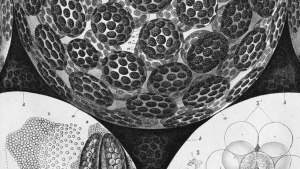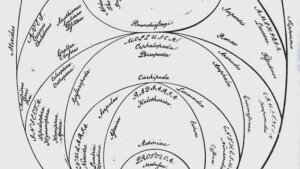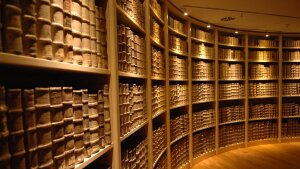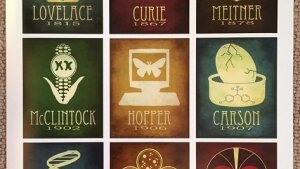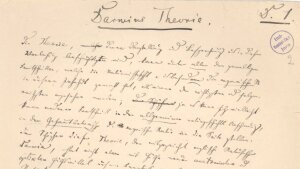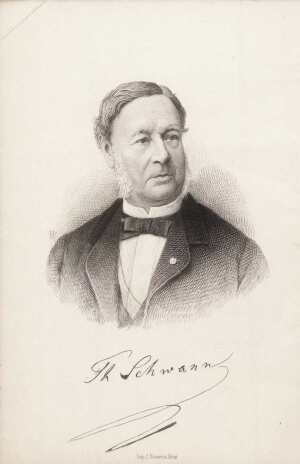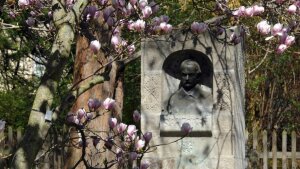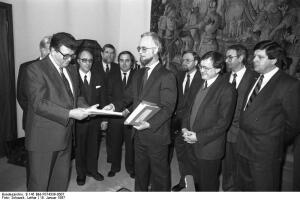Research at the Ernst-Haeckel-Haus is dedicated to the history and philosophy of the natural sciences and it uses a wide range of methods. With a focus on historical epistemology, it combines historical, philosophical, cultural and social analyses of knowledge and science from the 18th to the 21st century. We are interested in the specific culture of the natural sciences – their theories, practices, instruments and objects – as well as in the role of science in modern culture and societies.
Research fields at the Ernst-Haeckel-Haus include the history and philosophy of the life sciences, science and technology studies, the history of philosophy and science as well as the perspectives of cultural and gender studies on knowledge and society.
In our projects we pursue topical issues in the history of science: from natural science and the philosophy of nature in the 18th century, through the reciprocal relationship between philosophy, science and anthropology in the 19th and early 20th century up to modern genetics and cloning research in the 21st century; from the tense relations between science, politics, religion and society up to global knowledge transfers, material cultures of scientific practice and the history of objects. Further research topics are 19th and 20th century discourses on race and gender.
-
Network: History of Bioethics and Medical Ethics in Germany
Network: History of Bioethics and Medical Ethics in Germany External link
Network staff : Lukas Alex (Münster), Anna Klassen, Anna Maria Schmift (Duisburg-Essen), Matthias Schütz (München)
-
Anthropological Epistemology. Between Philosophy and the Life-Sciences in the 20th Century
Anthropologische Epistemologie. Zwischen Philosophie und Lebenswissenschaften im 20. Jahrhundert
Dissertation project: Julia Gruevska
-
Network: Philosophical-Historical Works
Contact
- netzwerk-philosophiehistorie@uni-jena.de
- Julia Gruevska (FSU Jena), Nicholas Coomann (FSU Jena), Max Beck (FSU Jena), Dr. Kevin Liggieri (TU Darmstadt)
Links/ Cooperation Partners
- https://nachmetaphysisches-philosophieren.uni-jena.deExternal link
- https://www.geschichte.tu-darmstadt.de/institut_fuer_geschichte_1/ifg_kontaktdetails_36608.de.jspExternal link
- https://igp.uni-wuppertal.deExternal link
-
Ernst Haeckel as Botanist – Reconstruction and Contextualization
Ernst Haeckel als Botaniker – Rekonstruktion und Kontextualisierung
(DFG BA 2121/1-1; Laufzeit vom 1.10.2020-30.09.2023)
Project directors: Dr. Thomas Bach und Prof. Dr. Frank Hellwig
Editor: Dipl. Biol. Elisabeth Müller
-
Theodor Swann’s Unpublished Work: Studies on the Relationship between Biology, Religion and Politics in the 19th Century
Portrait of Theodor Schwann (lithograph)
Image: Fonds/Nachlass Schwann (référence 70) - ULiège Library, Université de LiègeTheodor Swann’s Unpublished Work: Studies on the Relationship between Biology, Religion and Politics in the 19th Century
Project Manager: Dr. Florence Vienne
Hardly any 19th century natural scientist is so well-known and also so unknown as Theodor Schwann (1810-1882). Textbooks and history books remind us of his discovery of cells as the basic unit of plants and animals. Alongside Darwin’s theory of evolution, cell theory is one of the foundations of the biological sciences. However, while the many and diverse facets of Darwin the natural scientist have long since been researched on the basis of his Nachlass manuscripts, Schwann’s life and work remains largely unexplored. His extensive unpublished work has hitherto remained largely unknown. This includes experimental and scientific records, personal diaries as well as drafts and the manuscripts of his lectures. He kept a diary as a young assistant to the physiologist Johannes Müller (1801-1858) in Berlin in the 1830s and as a university lecturer in Leuven and Liège from 1839 up to the 1870s. His records document his work on the genesis of his 1838 cell theory but also its later further developments. They provide insights into the metaphysical and theological questions that shaped his worldview and scientific outlook from his youth up to his death. Like the botanist Jakob Matthias Schleiden (1804-1881) and the zoologist Ernst Haeckel (1834-1919), Schwann left behind a body of work that is an expression of a profound scientific and cultural transformation. Using the example of the three biologists, we can explore the reciprocal relations between the emergence of a cellular cell-based understanding of the living organism and the religious and political upheavals of the 19th century.
-
History of Science Workshop: Matthias J. Schleiden (1804-1881) in Jena
Photo of the Schleiden bust in the Botanical Garden of the University of Jena
Image: Anne Günther (University of Jena)The botanist and cell theorist Matthias J. Schleiden (1804-1881) lived and worked in Jena between 1839 and 1862. Here he met the philosopher Jakob Friedrich Fries (17763-1843), an important figure for him, and wrote his main work Grundzüge der wissenschaftlichen Botanik [Basic Features of Scientific Botany] (1842/43) as well as polemics against Naturphilosophie and materialism. He lectured on botany and anthropology at the university and gave popular scientific talks. From1850 to 1862 he was director of the botanical garden. In addition to his scientific activity, he was politically active in the revolutionary year 1848. In this history of science workshop, students and scholars explore the different facets of Schleiden’s life and work in Jena. The findings will be incorporated into a publication that uses the example of Schleiden to shed new light onthe relationships between natural science, philosophy and politics in the 19th century. The goal is to present the book publication to a larger audience at the Ernst-Haeckel-Haus.
Contact: Dr. Florence Vienne
-
Competing for interpretive sovereignty in cooperative committees: Bioethical debates and the development of a regulatory policy for the life sciences in Germany in the 1980s, (Anna Klassen & Christina Brandt; DFG-Project)
Learn more deCommission of Inquiry on Genetic Engineering
Image: BundesarchivManagement: Christina Brandt
Editing: Anna Klassen
DFG-Projekt, Teilprojekt 7 in der Forschungsgruppe "Kooperation und Konkurrenz in den Wissenschaften"
Kooperation und Konkurrenz in den Wissenschaften, Teilprojekt 7External link
-
Innovation through Knowledge Circulation. Research Technologies as Knowledge-Bearers in Circulation Processes in and between Innovation Cultures
Innovation through Knowledge Circulation. Research Technologies as Knowledge-Bearers in Circulation Processes in and between Innovation Cultures
DFG-Projekt
PD Dr. Christian Forstner
-
City Communication Space: Sites in the History of Physics in Jena
City Communication Space: Sites in the History of Physics in Jena
A Guide to the History of Physics for Jena
PD Dr. Christian Forstner
- Centre for Science Studies of the Leopoldina /HalleExternal linkde
- Herbarium Haussknecht, Jena de
- Phyletic Museum, JenaExternal linkde
- German Optical Museum, JenaExternal linkde
- Research Program History of the Max Planck Society (GMPG, MPIWG)External linkde
- Max Planck Institute of Geoanthropology, Jena (IMPRS "Modeling the Anthropocene")External linkde
- Chair for the History of Science, LMU München, Prof. Dr. Kärin NickelsenExternal linkde
- Chair for Modern German Literature, Freie Universität Berlin, Prof. Dr. Jutta Müller-TammExternal linkde
- Margherita von Brentano Center for Gender Studies, Freie Universität Berlin, PD Dr. Susanne LettowExternal linkde
- Institut für Grundlagenforschung zur Philosophiegeschichte (IGP), Bergische Universität Wuppertal, Prof. Dr. Gerald HartungExternal linkde
- Department of the History of Science and Pharmacy, TU Braunschweig, Prof. Dr. Bettina WahrigExternal linkde
- Chair for the History of Science, University of Erfurt, Prof. Dr. Bernhard KleebergExternal linkde
- Chair for Media Theory and History of Science, Bauhaus University Weimar, Prof. Dr. Henning SchmidgenExternal linkde
- Prof. Dr. Edna Suárez-Díaz, Facultad de Ciencias, Universidad Nacional Autónoma de MéxicoExternal linkde
- Prof. Dr. Pierre-Olivier Méthot, Chaire de recherche du Canada en Humanités médicales et histoire de la pensée biologique, Université LavalExternal linkfr
- Prof. Dr. Richard Kremer (Dartmouth College, Hanover)External link
- Prof. Dr. Stefanie Buchenau, Les Mondes Allemands, Université Paris 8 Saint-DenisExternal linkde
- Prof. Dr. Luis Campos, Rice University (Houston)External linkde
- Prof. Dr. Lynn K. Nyhart, Department of History, University of Wisconsin-MadisonExternal linkde
- Dr. Marion Thomas, Département d’histoire des sciences de la vie et de la santé, Université de StrasbourgExternal linkde
